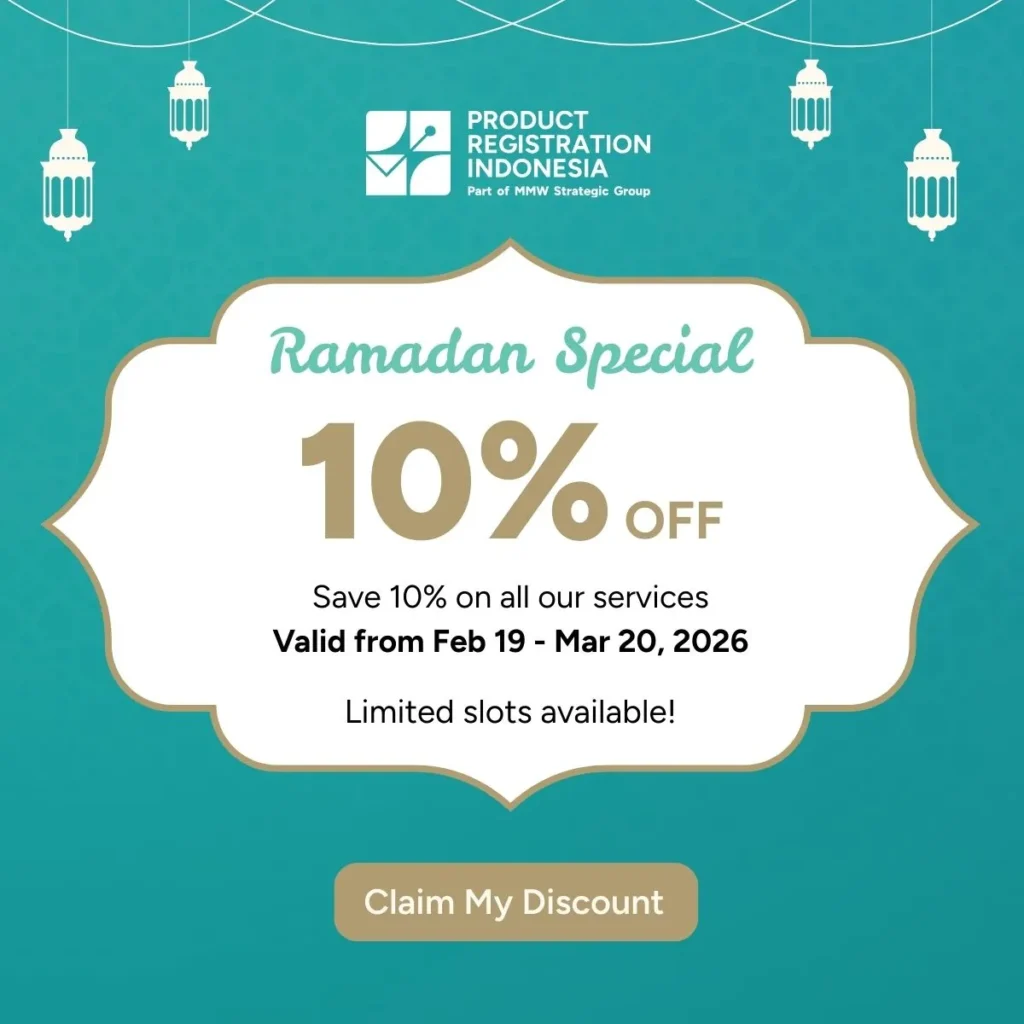The consumption of dietary supplements in Indonesia, including products for health and beauty enhancement, has seen a steady rise. While dietary supplements, cosmetic products, and food supplements are popular for their potential health benefits, there are hidden risks if consumers aren’t careful when selecting these products. Recently, the Indonesian National Agency of Drug and Food Control (BPOM) issued a warning regarding the dangers of benzylpiperazine, a substance found in certain dietary supplements. This industrial chemical, when used in consumer products, poses serious health risks, highlighting the need for strict BPOM registration and halal certification where applicable.
What is Benzylpiperazine and Why Has BPOM Banned It?
Benzylpiperazine is a synthetic compound often used as a solvent and chemical intermediary in various industrial applications. However, this substance provides no health benefits and can lead to severe health effects. Studies have shown that prolonged exposure to benzylpiperazine can damage the nervous system, impair liver function, and increase cancer risk. Due to these significant risks, BPOM introduced Regulation Number HK.00.05.42.6575 of 2007, which prohibits the use of benzylpiperazine in all types of dietary supplements and food supplements in Indonesia. This regulation aims to protect consumers by ensuring products on the market are compliant with BPOM safety standards.
Health Risks of Consuming Benzylpiperazine
Dietary supplements containing benzylpiperazine have been linked to various health problems, including:
- Nerve Damage: Benzylpiperazine can harm nerve cells, disrupting central nervous system functions.
- Liver Impairment: This compound negatively impacts the liver, which is crucial for metabolism and detoxification.
- Increased Cancer Risk: Research has shown that benzylpiperazine exposure raises the risk of developing certain cancers.
- Allergic Reactions: Some individuals may experience allergic reactions to benzylpiperazine, which could be severe.
Tips for Choosing Safe and Certified Supplements
To avoid consuming harmful substances in dietary supplements and cosmetics, consumers should carefully select products that meet BPOM registration standards and, when applicable, halal certification. Here are some tips:
- Verify BPOM Registration Number: Ensure the product is registered with BPOM by checking the BPOM number through the official BPOM website or mobile app.
- Check for Halal Certification: Many consumers prefer halal-certified supplements and cosmetics in Indonesia. Confirm the product has the necessary halal certification.
- Read the Label Thoroughly: Pay close attention to the ingredient list. Avoid products containing unknown or suspicious ingredients that do not align with BPOM’s safety requirements.
- Consult a Healthcare Professional: Before starting any supplement, consult a healthcare provider for guidance that aligns with your health needs.
- Purchase from Trusted Sources: Buy from reputable stores or pharmacies with a strong track record, ensuring the supplements meet BPOM and halal standards.
The Role of Producers and BPOM in Product Safety
Producers of dietary supplements and cosmetic products are responsible for ensuring the safety of their products by adhering to BPOM regulations and obtaining necessary certifications, such as halal certification for supplements sold to Muslim consumers. BPOM enforces strict guidelines, actively monitors product distribution, and takes action against companies that fail to comply with regulations.
Importance of Public Awareness
As consumers, it is crucial to be aware of the importance of product registration, halal certification, and safe ingredient use. Increasing public knowledge about reading labels, choosing safe products, and reporting suspicious items plays a significant role in safeguarding health. Consumers can contribute to a safer market by staying informed and making educated choices about dietary supplements, cosmetics, and food supplements.
Conclusion
While dietary supplements, cosmetics, and food supplements can offer health and beauty benefits, consumers must remain vigilant to select products that meet BPOM standards and are free from harmful substances like benzylpiperazine. By following best practices for product registration, consulting healthcare professionals, and supporting regulated brands, consumers can protect their health and enjoy the true benefits of safe, high-quality products in Indonesia.





